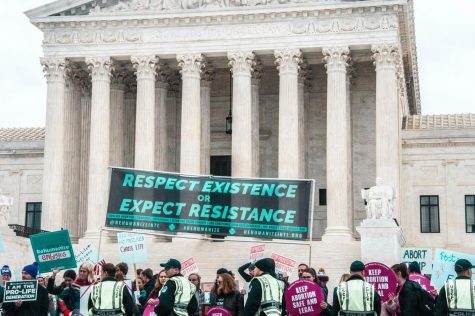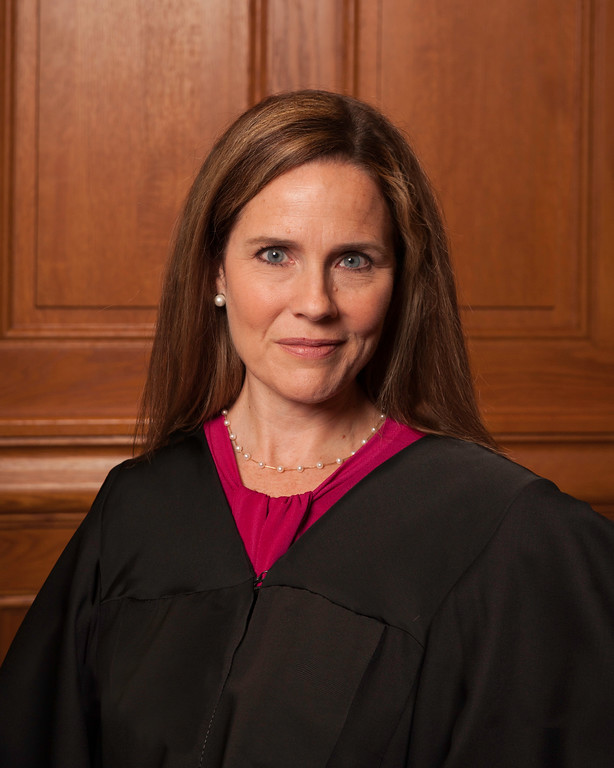Judge Amy Coney Barrett’s Stance on 5 Key Issues
Amy Coney Barrett’s, the likely replacement of Ruth Bader Ginsburg, probable rulings as a judge.
October 9, 2020
Judge Amy Coney Barrett is the leading contender to replace Judge Ruth Bader Ginsburg’s seat on the Supreme Court. If appointed, Judge Barrett could sway the Court on multiple key issues, setting a precedent for legislation across the country.
These are five important issues many anticipate Judge Barett to sway if appointed to the Court.
Abortion

Although the Trump Administration has claimed on multiple occasions they do not know how Judge Barrett would vote on a case with implications on abortion access, Judge Barrett’s history as a Judge points to a strong stance against abortion. As an Appeals Court Judge, she has consistently voted against abortion rights and has stated that she feels abortion is “always immoral.” In 2016, Trump also claimed that he would only appoint Supreme Court Justices who would overturn Roe v Wade. However, Barrett has previously stated that she did not think that Roe v Wade would be overturned. Although she has not claimed outright how she would vote on cases related to Roe v. Wade, if Barrett is appointed, many predict she will carry pro-life ideals to the Court. This may manifest as an eventual overturn of Roe v. Wade, preventing access to abortion for millions of women in the United States.
Death Penalty
As a strong Catholic, Barrett opposes the death penalty. This poses a difficulty for judges, as they are often put in a bind between upholding the law and abiding by their religious views. In a written piece during Barett’s time in law school (1998), she argued that the best option is for religious judges to recuse themselves from cases that are affected by their religious views. However, on the 7th circuit, she did vote to allow executions to proceed.
Gay Rights
Judge Barrett is opposed to gay marriage. Five years ago, she signed a public letter to Catholic bishops that stated marriage should only be between a man and a woman. Barett has also has defended the dissenters in Obergefell v. Hodges, who opposed the Supreme Court ruling that made marriage equality federally legal. Although she does not have enough court cases on gay marriage to ensure she would vote against it in the future, her past statements make it extremely likely.
Trans Rights
Barret’s judicial stance on trans rights is relatively unclear, however, previous statements imply that she does not support them. In a court case with a transgender defendant, she repeatedly referred to them by their dead name (the name they were assigned at birth), and has referred to trans women as “physiological males.” Additionally, she has questioned the rights given to transgender people through Title IX and thinks they should be reviewed by lawmakers. Thus, despite having little history with cases specifically regarding rights to transgender people, Barett has clear transphobic ideals.
Health Care
If appointed to the Supreme court, Barret will most likely vote to overturn the current Obamacare rulings. She has stated that she believes the Affordable Care Act was “[pushed] beyond its plausible meaning to save the statute.” She also agreed with Salia’s dissent to the 2015 case in which the court ruled the Affordable Care Act constitutional, thus believing it unconstitutional. These implications worry millions of people in the U.S., as the Affordable Care Act provides over 20 million people with healthcare.
Judge Amy Coney Barett has clear stances on multiple key issues. If appointed to the Supreme Court, many anticipate her judgment to overturn monumental cases from the past, along with changing the status of people’s rights to health care, their identity, and sexuality.


